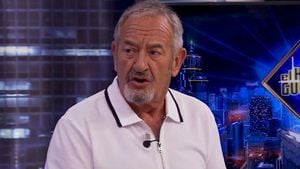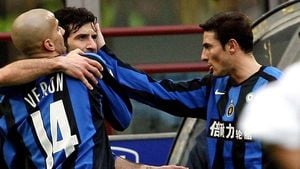Pope Francis remains hospitalized as he battles serious health issues, including pneumonia and the onset of renal insufficiency, raising questions about his ability to fulfill his papal duties. For the past ten days, the 88-year-old pontiff has been undergoing treatment at the Gemelli Hospital in Rome, where medical reports indicate his condition has experienced minor fluctuations but remains critically guarded.
According to the latest bulletins from the Vatican, as reported by various news outlets, Pope Francis experienced initial respiratory issues which escalated to pneumonia. He has been receiving oxygen therapy, with adjustments made to his treatment plan. "Despite these challenges, he has shown some improvement and remains conscious," stated the Vatican. Notably, he has engaged with the outside world, even holding telephone conversations with clergy from Gaza, indicating his desire to maintain his pastoral roles.
His health crisis, particularly tendered by the recent announcement of mild renal insufficiency, has reignited discussions about his possible succession—a topic already fraught with speculation due to his advanced age and long-standing health issues. This speculation takes heightened significance against the backdrop of the church's history, especially as there are no specific rules governing the succession process if the Pope becomes incapacitated without either dying or officially resigning. The Vatican's guidelines are clear on how power transitions upon the death or resignation of the Pope; for every other scenario, including illness, the procedures are less defined.
Experts and church officials have pointed out the ambiguity surrounding the Pope's resignation. While it is widely acknowledged he previously drafted a resignation letter should he ever find himself unable to serve, the specifics of such contingencies remain largely undisclosed, creating unease among the faithful and observers alike. Recently, former Secretary of State Cardinal Tarcisio Bertone had suggested preparations must be made for future contingencies, echoing sentiments shared by health experts who warn against sudden demands on the pontiff's weakened health.
The urgency around his potential succession has also been fueled by the historical precedent set by his predecessor, Pope Benedict XVI, who shocked the world by stepping down, creating the need for clarity about the Church's governance during any transition period. Today, the Cardinals and Vatican officials continue to collaboratively manage church operations, with Cardinal Pietro Parolin, the Secretary of State, overseeing regular matters in Pope Francis's absence.
Interestingly, as Pope Francis recuperates, it remains unclear whether his health challenges will lead to broader discussions about church governance reforms. The challenges posed by his health are reminiscent of similar moments in Papal history, where illness necessitated shifts not just within the papacy but also among the church's hierarchy.
Adding to the intrigue surrounding his health, some analysts have turned to the “Prophecy of the Popes,” attributed to St. Malachy, which claims Francis is the second-to-last Pope before the world enters its final tribulations. This controversial prophecy pulls attention to how adherents interpret elements of the papacy, especially concerning the perceived crises within the church. While some view the prophecy as fanciful or spurred by historical recounting, others take it seriously, making campaigns to decipher and align current events with its predictions. Such notions have resurfaced as the pontiff's health falters, invoking intense speculation about his successor—alleged to be “Petrus Romanus,” the last Pope who will preside over crushing trials.
During recent public appearances, Pope Francis has vehemently urged prayers for peace across nations embroiled in conflict, including Ukraine and Sudan, showcasing his continued commitment to his papal duties, regardless of his health status. The global community and ecumenical leaders have taken note, calling for prayers for his strength and quick recovery.
Alarmingly, as Pope Francis's health continues to be critically observed, prominent figures, such as actors from the newly released film “Conclave,” which delves deeply through the lens of papal succession, have expressed their worry publicly. Among them, Isabella Rossellini voiced the sentiments felt by many: "We are very, very concerned for our Pope. We love this Pope—Pope Francis. We wish him all the best and hope he recovers soon.”
While the Vatican has maintained operations, the state of Pope Francis’s health looms over the Church’s future, spurring both fervent prayers among Catholics worldwide and tactical preparations among Cardinals for what many fear could be the beginning of the end of this papal era—an era characterized by remarkable outreach, inclusivity, and reform to the Catholic faith.
With every passing day, the moral and logistical questions surrounding this moment grow ever more pressing: how can the Church structure itself to transition leadership seamlessly should the need arise? And as elderly Popes become more commonplace, how might this new reality shape the church's future leadership dynamics? These questions linger as the world awaits updates on Pope Francis, who remains at the epicenter of global Catholic dialogue.



